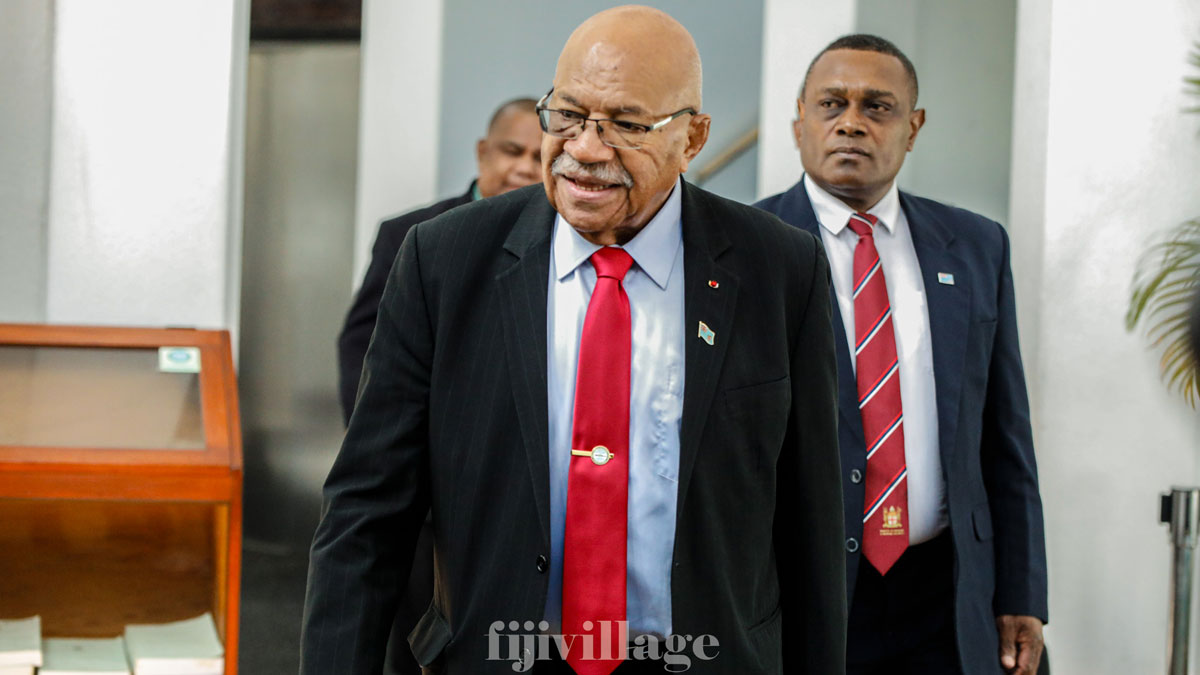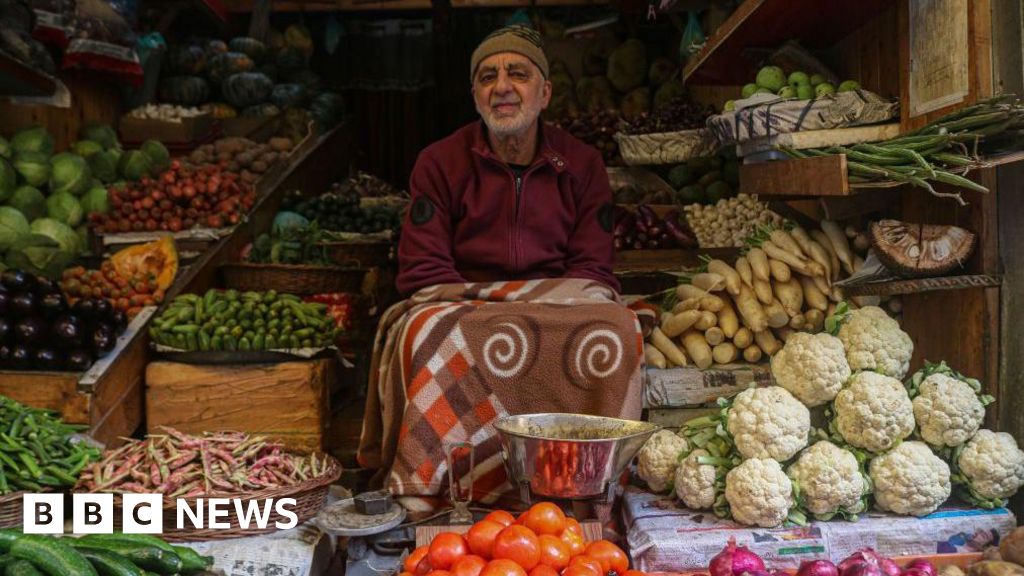Fiji's New Budget Introduces VAT Reduction and Fiscal Changes

Fiji's 2025/2026 National Budget, described as expansionary by Prime Minister Sitiveni Rabuka and Deputy Prime Minister and Minister for Finance Professor Biman Prasad, aims to significantly alleviate the cost of living and stimulate economic growth. With a total projected revenue of $3.9 billion against an expenditure of $4.8 billion, resulting in a net deficit of $886 million, the government debt is projected at $11.7 billion, approximately 79.8% of GDP, which is about 10% lower than what was inherited in 2023. This strategic fiscal approach is designed to protect citizens, incentivize investment, and foster economic activity across key sectors.
A core measure to ease the cost of living is the reduction of Value Added Tax (VAT) from 15% to 12.5%, effective August 1st, 2025. This reduction is expected to deliver $250 million in tax relief, complementing the existing $250 million relief from zero-rated VAT on 22 essential items, totaling $500 million in VAT relief. To directly benefit households, civil servants will receive a 3% pay rise from August 2025, contributing to a total increase of 10% to 23% within a year, while social welfare recipients and government pensioners will see a 5% increase in their monthly allowances. Additionally, a 10% bus fare subsidy will be provided for all Fiji citizens for a 12-month period starting August 2025, ensuring reduced fares for commuters. Import duties on a range of essential food items have been substantially reduced or maintained at zero, with tariffs on chicken portions and offals dropping from 42% to 15%, and fiscal duty on frozen fish, including salmon, reduced from 15% to 0%. The government, in collaboration with FCCC, Consumer Council, FRCS, and the Ministry of Finance, will closely monitor prices to ensure these reductions are passed on to consumers, threatening price controls or tariff removals for non-compliant businesses and actively working to open import pathways for key food products like whole frozen chicken and ghee to enhance supply chain competition.
The budget also introduces comprehensive measures to boost investment and economic activity. There are no general tax increases, with the focus remaining on targeted relief and growth incentives. These include a 150% tax deduction for donations to Accredited Start-Up Support Programs, extended employment taxation schemes (300% tax deduction for work placements/apprenticeships/part-time employment, and 400% for hiring persons with disabilities) until December 31st, 2026. Green investments are strongly encouraged, with income from new renewable energy and co-generation projects now tax-exempt for 10 years, and the Tax-Free Region incentive extended to Wainadoi for waste management and renewable energy businesses. Donations to vital community institutions like health centers, aged care homes, orphanages, and drug rehabilitation facilities will receive a 100% tax deduction. The tourism sector benefits from a new 25% investment allowance for capital investments in tour and sightseeing operations. To enhance tax administration and reduce evasion, a VAT Monitoring System (VMS) will be phased in from January 1st, 2026, for businesses with an annual turnover of $50,000 or more. Furthermore, new VAT refund initiatives are introduced for capital investments in residential solar projects and for construction costs incurred in rebuilding or repairing homes damaged by termites. The agriculture sector also receives support with mechanical harvester services supplied by registered cooperatives now zero-rated for VAT.
A significant highlight for Fiji National Provident Fund (FNPF) members is the historic 8.75% interest rate for the financial year ending June 30th, 2025, marking the highest credit interest rate in over 30 years, with $698.75 million to be credited to member accounts. The Fund's investment income exceeded $1 billion, driven largely by equities, government bonds, commercial debt, and property, underscoring a robust and diversified investment strategy.
Substantial investments are allocated to infrastructure development. The Fiji Roads Authority receives $388 million, including $120 million for road maintenance and $74 million for renewals and resealing. Four critical bridges, valued at $400 million (Lami, Medraukutu, Sabeto, and Viseisei), are slated for replacement with support from the Asian Development Bank and World Bank. Traffic congestion in major urban centers will be addressed through road widening, improved lighting, smart traffic signals, and a $500,000 feasibility study for a flyover road from Suva to Nausori. The Labasa Bypass Project will also commence to ease mobility in the Northern Division. For water infrastructure, the Water Authority of Fiji receives $284 million to upgrade water sources, treatment plants, and distribution networks. Key projects include a major 11.7 km pipeline from Sawani to Khalsa Road for continuous supply to elevated areas, a new 20-megalitre water treatment plant in Tamavua to benefit 230,000 people, and new plants in Navua and Wainadoi. Efforts are also focused on reducing non-revenue water from nearly 50% to 20% over the next five years, with legislative changes for WAF's corporatization underway.
The social sector also receives significant attention, particularly in housing, education, and health. For affordable housing, the government, through the Housing Authority and Public Rental Board, aims to deliver approximately 2,900 residential lots and over 1,800 houses in various locations, supported by partnerships with NGOs and an extension of tax incentives for subdivision developments. First home buyers' grants continue, with up to $30,000 for construction and $15,000 for purchases for those earning below $50,000. Around $15 million is allocated for formalizing informal settlements, with plans to formalize an additional 1,500 housing leases in new areas and $2.2 million for the relocation and resettlement of affected families. In education, the $65 million free education grant will offer full flexibility to school managements, removing previous spending restrictions, and fundraising activities will no longer be limited to once a year. Teachers will receive an additional 3% pay rise, and 1,125 new teachers will be recruited, with Early Childhood Education teachers' appointments regularized. The government is allocating $153 million to fund tertiary studies for a historically high number of 24,653 students, with increased scholarship allowance rates across various schemes, including special needs and equity/inclusion-based allowances. TVET scholarships are significantly increased and expanded, including for overseas qualifications. The health sector sees a record allocation of over $600 million, with almost a billion dollars mobilized for investments. Plans are underway for a new national hospital, potentially costing $2 billion, with a first phase financing package of $500 million. Major upgrades are commencing at the existing CWM Hospital, and a 100-bed Super Specialty Hospital in Nasinu is advancing with Indian grant support. Medicine supply is being reformed through new tenders and an online logistics system, and the government continues its public-private partnerships for free medical services and kidney dialysis subsidies.
In terms of law, order, and governance, the budget introduces measures to enhance policing and financial transparency. The Police Force will be increased by an additional 1,000 personnel, taking its strength to over 6,550, with a budget of $240.3 million. A new Ministry of Policing, with its Narcotics Bureau, will lead the fight against drug trafficking. Border protection is being enhanced with new facilities and K9 detection capabilities. To tackle illicit financial activities, all mobile wallet account holders will be required to register with a Tax Identification Number (TIN), and a mandatory Asset Declaration regime for all registered sole traders will commence with the 2025 tax year. The government is also allocating $10 million to combat the rising HIV epidemic through comprehensive testing, prevention, and public awareness campaigns. The Fijian Elections Office is allocated $20 million for preparatory work for the next general elections. To support the Fijian diaspora, changes to the Income Tax Act will allow for the use of resident Family Trusts for asset protection, and Fiji Citizenship and passport fees will be reduced from $3,450 to $1,500 for those wishing to return and invest, effective August 1st. These measures reflect a pro-people, pro-growth, and pro-investment tax framework, aiming to reward innovation, create jobs, lower the cost of living, and strengthen the social contract between the state and its citizens.










